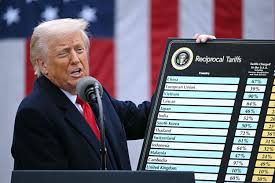The recent decision by the Dangote Petroleum Refinery to suspend the sale of petroleum products in naira has triggered panic buying among filling station operators.
Some fuel retailers have begun stockpiling Premium Motor Spirit, anticipating a price increase due to the Federal Government’s failure to continue crude oil sales to the refinery in local currency. This move has raised concerns about possible fuel scarcity and hoarding in the downstream petroleum sector.
Following the Dangote refinery’s announcement, the cost of loading petrol at private depots in Lagos surged to about N900 per litre, up from less than N850 per litre before the decision. Independent marketers have reacted by purchasing and storing large volumes of fuel, expecting higher resale profits should prices rise further.
However, the Independent Petroleum Marketers Association of Nigeria has warned against such speculative buying, cautioning marketers about potential losses if the refinery reverses the price hike.
“Some depot owners are already increasing prices, but we advise our marketers not to panic-buy. If Dangote Refinery later reduces its prices, those who have stockpiled fuel at higher rates could suffer significant losses,” IPMAN’s National Publicity Secretary, Chinedu Ukadike, stated in an interview.
Last week, the 650,000 barrels-per-day Dangote Refinery announced the temporary halt of naira-based sales due to a currency mismatch in its crude purchase agreements. The company explained that its crude oil procurement costs are denominated in U.S. dollars, creating financial imbalances when selling refined products in naira.
“Our sales of petroleum products in naira have exceeded the value of naira-denominated crude we have received. To align with our crude procurement currency, we must temporarily adjust our sales strategy,” the refinery stated.
Since the announcement, the Federal Government has yet to issue an official response, leaving industry stakeholders uncertain about the future of the naira-for-crude deal. The uncertainty has fueled speculation among depot owners, who have swiftly raised prices, leading to potential supply chain disruptions.
Meanwhile, oil marketers and industry experts warn that the suspension could increase pressure on the foreign exchange market, as fuel importers will now require more U.S. dollars to purchase petroleum products.
IPMAN’s Ukadike advised marketers against excessive purchasing to avoid financial risks. “We urge our members not to overstock at high prices, as a sudden price drop could lead to heavy losses,” he emphasized.
Sources from the Federal Ministry of Finance and the Federal Ministry of Petroleum Resources confirmed that a technical committee on the naira-for-crude policy would reconvene today (Monday) to address the impasse. The Nigerian Upstream Petroleum Regulatory Commission has been tasked with proposing solutions to restore the agreement and ensure continued local crude supply.
A government insider revealed that the naira-for-crude transaction would not be permanently halted but acknowledged that the Nigerian National Petroleum Company Limited faces challenges in crude oil availability. The source disclosed that large volumes of future crude production had been pre-sold to secure international loans, limiting supply to domestic refineries.
Industry sources suggest that halting the naira-for-crude deal could be a strategic move to limit the Dangote refinery’s growing market influence. Some players in the downstream sector have accused the refinery of monopolistic tendencies, alleging that its pricing strategy has disrupted market dynamics.
Meanwhile, domestic crude refiners argue that suspending the agreement undermines efforts to achieve energy security. The Crude Oil Refinery Owners Association of Nigeria criticized the move, stating that it contradicts the government’s initiative to promote local refining.










